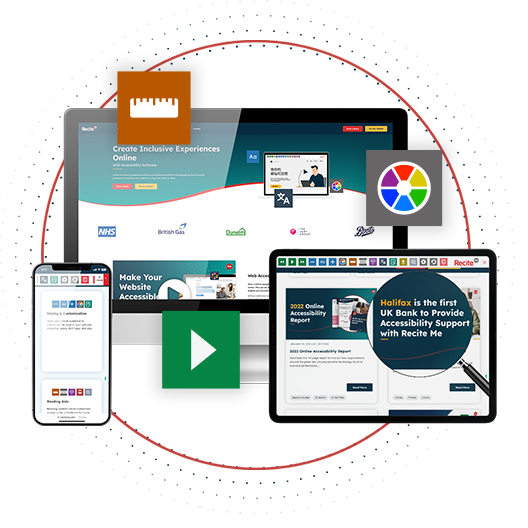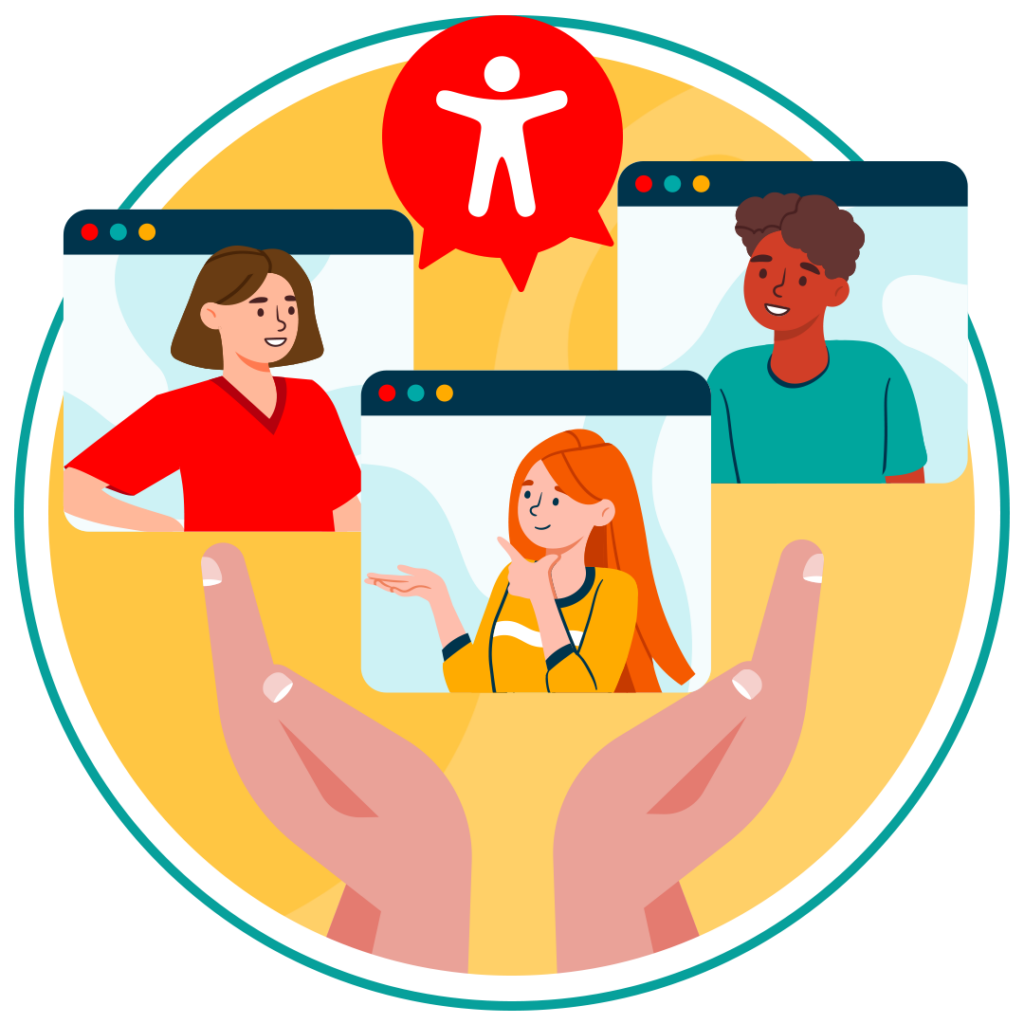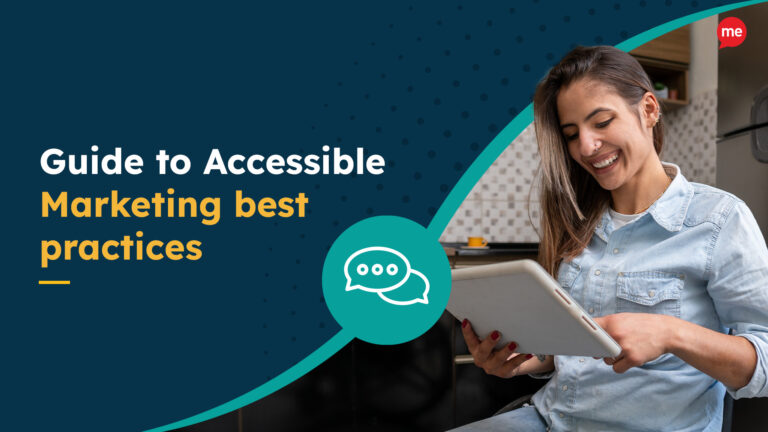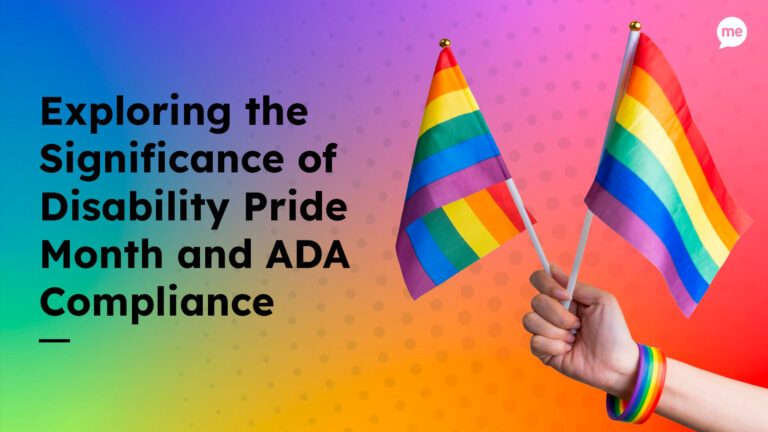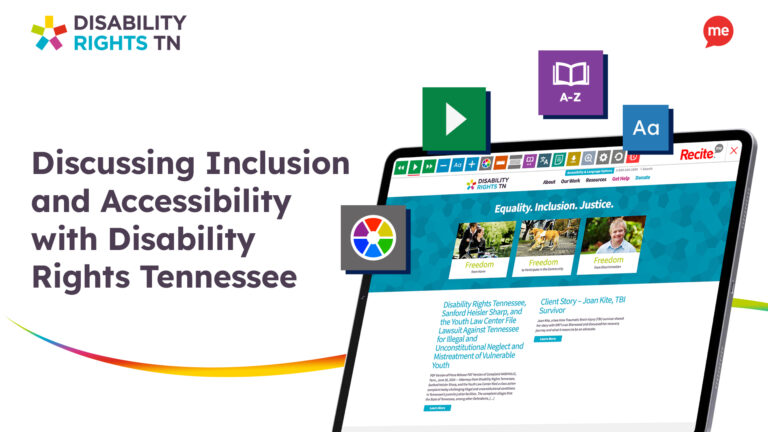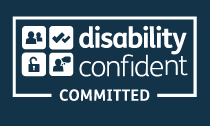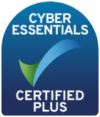March is Developmental Disabilities Awareness Month, a time to raise awareness about the inclusion of people with developmental disabilities in all areas of community life, as well as awareness of the barriers that people with disabilities still sometimes face in connecting to the communities in which they live.
Developmental Disabilities Awareness Month was created by Ronald Reagan in 1987 when he declared March a month dedicated to:
“according to our fellow citizens with such disabilities both encouragement and the opportunities they need to lead productive lives and to achieve their full potential.”
Fast forward 37 years and attitudes towards all kinds of disabilities and social exclusion factors have changed considerably – and mostly for the better. However, there is still work to be done in raising awareness so we can create equal opportunities and provide equitable online experiences for everyone.
What is a Developmental Disability?
The CDC defines developmental disabilities as:
“A group of conditions due to an impairment in physical, learning, language, or behavior areas.”
As the name would suggest, developmental disabilities typically first occur during the developmental period – the first 18 years of life before an individual reaches adulthood. However, they usually last throughout a person’s lifetime and may impact day-to-day functioning in various ways.
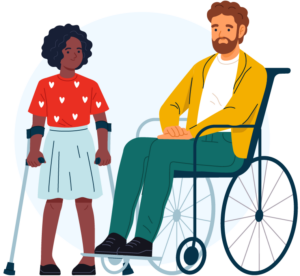
Developmental disabilities occur among all socioeconomic groups and races and are estimated to affect at least 15% of the population. In general, developmental disabilities fall into four main categories:
- Nervous system disorders
- Sensory-related disabilities
- Metabolic disorders
- Degenerative disorders
Different Types of Developmental Disabilities
The number of conditions included under the umbrella of developmental disabilities is wide-ranging. Some common examples include:
- Down syndrome
- Fragile X syndrome
- Autism Spectrum Disorder
- Williams’s Syndrome
- Phenylketonuria (PKU)
- Aspergers
- Rett syndrome
There are others, of course. And, there’s a veritable alphabet soup of different terms used to describe those who don’t learn at the same rate as their peers. Along with developmental disability, you’ve probably heard of the terms ‘learning disability’ and ‘learning disorder.’ However, these broad terms aren’t particularly helpful in identifying the many and varied problems that people face, and there’s much contention over precisely what is characterized as a developmental disability.
For example, specific difficulties with language, numbers, and spatial awareness are typically classed as learning disorders rather than developmental disabilities and include many conditions that perhaps you’d expected to find on the list above, including:
- Dyslexia
- Dyspraxia
- Dysgraphia
- Dyscalculia
- Hyperlexia
- Developmental Language Disorder (DLD)
- Attention Deficit Hyperactivity Disorder (ADHD)
Classification debates aside, the takeaway factor is that everyone learns differently, and support mechanisms must be in place for individuals with brains and bodies that function differently from ‘the norm’.
The Importance of Disability Inclusion in Everyday Life
Disabilities often affect entire families and friendship groups. Statistics show that overall, one in every four Americans has a disability, so the impacts of disability will have touched most of our lives at one point or another.
Adapting to meet the complex needs of someone with a developmental disability can put their extended circle under significant emotional and financial stress. Having readily available resources, knowing what to expect, and being able to plan for the future can significantly improve the overall quality of life for all involved.
Developing policies and best practices to include the disabled community ensures that everyone has equal access to:
- Education
- Health promotion and prevention
- Jobs and workplace inclusion
- Travel and leisure opportunities
- Financial and legal assistance
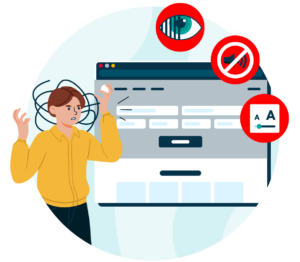
What Support Do Disabled People Need Online?
Whether an individual has a developmental disability, learning disability, or learning disorder, they may struggle to assimilate information. Specific barriers to understanding may include:
Problems identifying speech sounds and learning how they relate to letters and words.
Poor spatial awareness, forgetfulness, and difficulty mastering motor skills.
Problems with spelling and reading.
Difficulty understanding numbers.
A tendency to engage in repetitive behaviors.
Varied approaches are therefore needed when it comes to learning and working online to ensure equitable experiences for everyone. Research shows that disabled customers are more loyal to brands. So, once you know what disabled consumers want and work to provide it, you will likely attract and retain customers that stay with you for much longer – and drive more new business through word-of-mouth recommendations.
How Recite Me Technology Can Help
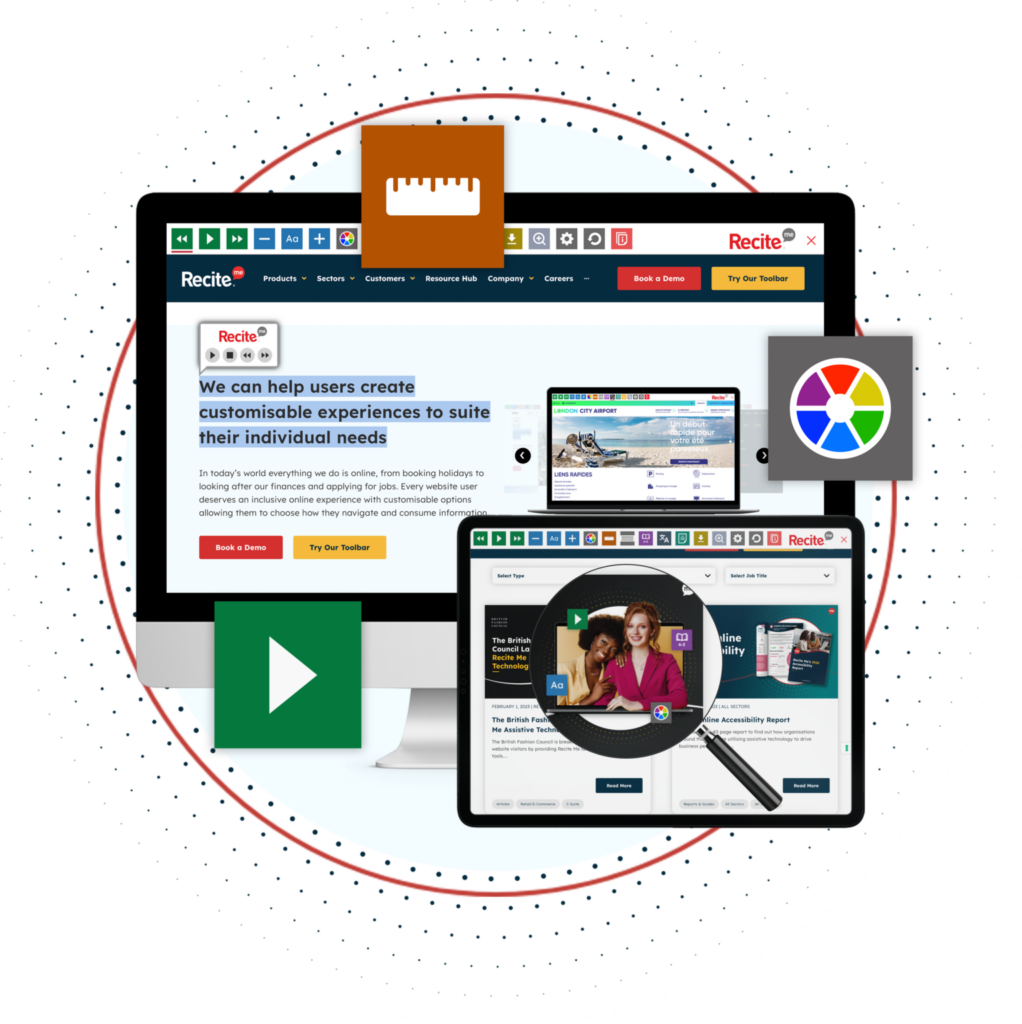
Recite Me assistive technology is the perfect solution to help organizations support individuals with developmental (and any other type of) disabilities.
Our assistive toolbar gives website visitors complete control over how they consume your content by making customized changes to the design, content, and layout. Users can make singular or multiple adjustments. Toolbar features include:
- A screen mask to help with focus and concentration.
- Options to have content read aloud in over 65 different languages to negate reading difficulties.
- Control over the speed at which the text is read aloud to allow for varying auditory preferences.
- Customization options for text font, color, sizing, and spacing, so that the look of the webpage can be tailor-made into the perfect format for every individual.
- A spell-checker and a fully integrated dictionary and thesaurus to help with comprehension.
Furthermore, if you want to try your hand at making your website more inclusive, then try out our free-to-use ADA and WCAG compliance checker.
Join us in Supporting the Disabled Community
Join us in our mission to create a more equal and inclusive world. When you actively support the disabled community in your homes, schools, and workplaces, you help drive positive change that leads to more equitable opportunities and solutions for everyone.
Looking for inspiration or resources? Check out the Developmental Disabilities Awareness Month website for more information, learning materials, and details about free events.
Want to learn more about Recite Me? Get in touch today or schedule a free demo to discover how we can help you create inclusive online experiences by providing accessibility and language options that enable people to customize your website in a way that works for them.
